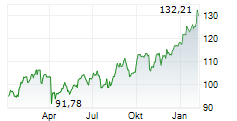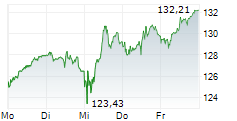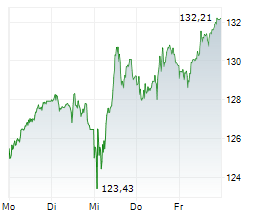
BASEL (dpa-AFX) - Novartis Pharma AG, affiliated to Swiss drug major Novartis AG (NVS), announced Monday updated analysis from the pivotal Phase III NATALEE trial of investigational Kisqali (ribociclib) added to endocrine therapy or ET, which shows deepening benefit beyond the three-year treatment period, in early breast cancer patients.
In the trial, Kisqali reduced the risk of recurrence by 28.5%, compared to ET alone, in patients with stage II and III hormone receptor-positive/human epidermal growth factor receptor 2-negative or HR+/HER2- early breast cancer.
Novartis submitted NATALEE data to the U.S. Food and Drug Administration and European Medicines Agency in 2023, and FDA regulatory action is expected in the third quarter.
Kisqali, developed by Novartis under a research collaboration with Astex Pharmaceuticals, is a selective cyclin-dependent kinase inhibitor, a class of drugs that help slow the progression of cancer by inhibiting two proteins called cyclin-dependent kinase 4 and 6.
NATALEE is a global Phase III multi-center, randomized, open-label trial to evaluate the efficacy and safety of Kisqali with ET as an investigational adjuvant treatment versus ET alone in patients with stage II and III HR+/HER2- EBC, being conducted in collaboration with TRIO.
The company noted that invasive disease-free survival benefit continued to increase after completion of the three-year treatment period across all patient subgroups, including those with node-negative disease.
The trial results remain consistent across secondary endpoints, including distant disease-free survival, with a trend for improved overall survival.
In the study, Kisqali's safety is in line with previously reported results with generally low-grade symptomatic adverse events, reinforcing well-tolerated profile.
Late-breaking data from this four-year post-hoc analysis will be presented at the European Society for Medical Oncology or ESMO Congress 2024.
Shreeram Aradhye, President, Development and Chief Medical Officer, Novartis, said, 'As we anticipate regulatory action from health authorities worldwide, we are highly encouraged by these longer-term results from NATALEE showing a deepening efficacy benefit for Kisqali. A large number of people diagnosed with HR+/HER2- early breast cancer remain at risk of recurrence, and these results add to the growing body of evidence supporting the potential of Kisqali to reduce this risk consistently across a broad population, including patients with node-negative disease who have few options beyond ET.'
For More Such Health News, visit rttnews.com
Copyright(c) 2024 RTTNews.com. All Rights Reserved
Copyright RTT News/dpa-AFX
© 2024 AFX News




